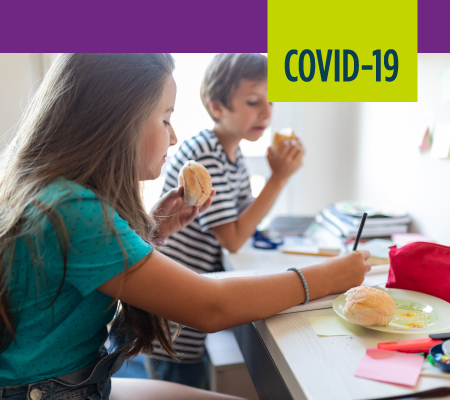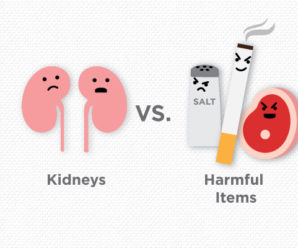
Editor’s note: This article was published on August 24, 2020. COVID-19 information and recommendations are subject to change. For the most up-to-date information, visit the Centers for Disease Control and Prevention (CDC) website or view our most recent COVID-19 blog posts.
Children and teens typically get their meals and snacks from school and participate in gym on a regular basis, but COVID-19 has made it harder to navigate a healthy lifestyle for children. For some, childhood obesity has become a real concern.
“During this pandemic, I have seen children with significant weight gain as they are missing out on regular activity through gym when they would have been in school,” said Dr. Anoop Iqbal, a pediatric endocrinologist and weight management specialist in the Pediatric Lifestyle Clinic at Marshfield Children’s. “The pandemic also has affected families financially, so many had to depend on school lunches and food banks, which may not have the healthiest foods.”
Whether kids are less active during the school day or now have access to less healthy food, there are simple solutions you can take today to help curb unexpected increases in weight in your children and teens.
Getting exercise in the day
Many schools are not having gym during the school day due to COVID-19 concerns. For children and teens participating in virtual learning, they may be sitting in front of their device for much of the day. This may be compounded when sports are cancelled and children are not able to play with their friends.
“It is important that kids get at least one hour of physical activity in every day,” Dr. Iqbal said. “It doesn’t have to be hard exercise – just something that gets their heart pumping faster. Simple exercises like jumping jacks and skipping rope are very good cardio workouts.”
Dr. Iqbal also recommends kids dance to their favorite music, walk their pets or go with you on family hikes. Teenagers could do actual workouts that you can find online. For more ideas, check out this resource.
Getting control of your fridge
When children and teens are home, that means they have free access to your fridge and snack drawer all day. This can promote over-eating and poor decisions.
“During this time especially, it is important to avoid purchasing junk food. Parents should buy only things they want their kids to eat,” Dr. Iqbal said. “This way kids have no choice but to have healthy foods.”
It is important to avoid liquid calories like soda and juice – instead drink water. Dr. Iqbal also recommends children and teens should drink 1-2 cups of water before each meal to limit portion sizes.
High protein snacks like cheese sticks or a handful of nuts like almonds are good options that can be filling and curb hunger for longer.
“It is important to watch portion size even for these snacks, so putting things into portioned bags is a good option,” Dr. Iqbal said.
Mental health plays a role in overeating
During the pandemic, children and teens are under increased stress. They are missing their best friends from school and are not able to do things like going to theme parks, play dates or sleepovers. This increased stress can lead to overeating.
“Parents should focus on family activities, which will also improve family bonding,” Dr. Iqbal said. “Many family activities can also incorporate physical activity, which is a win-win when tackling childhood obesity during the pandemic.”
If you notice your children or teens sleeping more than normal, not showing interest in daily activities, being very silent or mindlessly eating, Dr. Iqbal recommends you reach out to your child’s pediatrician and ask about behavioral health services in your community to rule out depression or anxiety.
For more great resources on eating right or getting active, wecan.nhlbi.nih.gov from the National Institutes of Health is a great resource for parents or talk to your child’s doctor. Click here to learn more about our pediatric Lifestyle Management Clinic.







Leave a Reply